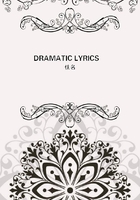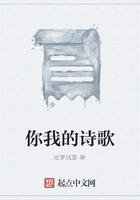While some persons accused William of breaking faith with the House of Austria, others accused him of interfering unjustly in the internal affairs of Spain. In the most ingenious and humorous political satire extant in our language, Arbuthnot's History of John Bull, England and Holland are typified by a clothier and a linendraper, who take upon themselves to settle the estate of a bedridden old gentleman in their neighbourhood. They meet at the corner of his park with paper and pencils, a pole, a chain and a semicircle, measure his fields, calculate the value of his mines, and then proceed to his house in order to take an inventory of his plate and furniture. But this pleasantry, excellent as pleasantry, hardly deserves serious refutation. No person who has a right to give any opinion at all about politics can think that the question, whether two of the greatest empires in the world should be virtually united so as to form one irresistible mass, was a question with which other states had nothing to do, a question about which other states could not take counsel together without being guilty of impertinence as gross as that of a busybody in private life who should insist on being allowed to dictate the wills of other people. If the whole Spanish monarchy should pass to the House of Bourbon, it was highly probable that in a few years England would cease to be great and free, and that Holland would be a mere province of France. Such a danger England and Holland might lawfully have averted by war; and it would be absurd to say that a danger which may be lawfully averted by war cannot lawfully be averted by peaceable means. If nations are so deeply interested in a question that they would be justified in resorting to arms for the purpose of settling it, they must surely be sufficiently interested in it to be justified in resorting to amicable arrangements for the purpose of settling it. Yet, strange to say, a multitude of writers who have warmly praised the English and Dutch governments for waging a long and bloody war in order to prevent the question of the Spanish succession from being settled in a manner prejudicial to them, have severely blamed those governments for trying to attain the same end without the shedding of a drop of blood, without the addition of a crown to the taxation of any country in Christendom, and without a moment's interruption of the trade of the world by land or by sea.
It has been said to have been unjust that three states should have combined to divide a fourth state without its own consent;and, in recent times, the partition of the Spanish monarchy which was meditated in 1698 has been compared to the greatest political crime which stains the history of modern Europe, the partition of Poland. But those who hold such language cannot have well considered the nature of the Spanish monarchy in the seventeenth century. That monarchy was not a body pervaded by one principle of vitality and sensation. It was an assemblage of distinct bodies, none of which had any strong sympathy with the rest, and some of which had a positive antipathy for each other. The partition planned at Loo was therefore the very opposite of the partition of Poland. The partition of Poland was the partition of a nation. It was such a partition as is effected by hacking a living man limb from limb. The partition planned at Loo was the partition of an ill governed empire which was not a nation. It was such a partition as is effected by setting loose a drove of slaves who have been fastened together with collars and handcuffs, and whose union has produced only pain, inconvenience and mutual disgust. There is not the slightest reason to believe that the Neapolitans would have preferred the Catholic King to the Dauphin, or that the Lombards would have preferred the Catholic King to the Archduke. How little the Guipuscoans would have disliked separation from Spain and annexation to France we may judge from the fact that, a few years later, the States of Guipuscoa actually offered to transfer their allegiance to France on condition that their peculiar franchises should be held sacred.
One wound the partition would undoubtedly have inflicted, a wound on the Castilian pride. But surely the pride which a nation takes in exercising over other nations a blighting and withering dominion, a dominion without prudence or energy, without justice or mercy, is not a feeling entitled to much respect. And even a Castilian who was not greatly deficient in sagacity must have seen that an inheritance claimed by two of the greatest potentates in Europe could hardly pass entire to one claimant;that a partition was therefore all but inevitable; and that the question was in truth merely between a partition effected by friendly compromise and a partition effected by means of a long and devastating war.
There seems, therefore, to be no ground at all for pronouncing the terms of the Treaty of Loo unjust to the Emperor, to the Spanish monarchy considered as a whole, or to any part of that monarchy. Whether those terms were or were not too favourable to France is quite another question. It has often been maintained that she would have gained more by permanently annexing to herself Guipuscoa, Naples and Sicily than by sending the Duke of Anjou or the Duke of Berry to reign at the Escurial. On this point, however, if on any point, respect is due to the opinion of William. That he thoroughly understood the politics of Europe is as certain as that jealousy of the greatness of France was with him a passion, a ruling passion, almost an infirmity. Before we blame him, therefore, for making large concessions to the power which it was the chief business of his life to keep within bounds, we shall do well to consider whether those concessions may not, on close examination, be found to be rather apparent than real. The truth is that they were so, and were well known to be so both by William and by Lewis.















